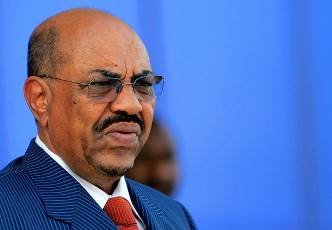FACTBOX: Sudan singles out Kenya for retaliation over Bashir’s warrant
November 30, 2011 (WASHINGTON) – Sudan’s decision this week to expel the Kenyan ambassador after a High Court judge ordered the government in Nairobi to arrest president Omer Hassan al-Bashir, took many observers by surprise with some describing it as an overreaction.

It became clear later that the decision on downgrading diplomatic ties between the two nations was taken by the Sudanese leader himself as suggested by the foreign ministry spokesperson.
Many editorials in Kenyan newspapers questioned why Khartoum is punishing the executive branch for a decision taken by the judiciary under a revamped constitution adopted last year. Kenyan officials have blasted the ruling of their own judge and vowed to appeal.
While it is yet to be seen why Sudan quickly resorted to this drastic measure against Kenya, some NGO officials told Sudan Tribune that they believe Khartoum fears that the judge’s order could set a precedent in Africa which has mostly backed Bashir against the ICC.
Following is list of actions taken by countries against Bashir through the years following the issuance of the arrest warrant by the Hague-based tribunal. None have prompted an expulsion of envoys by Sudan.
Argentina: At the 2nd annual summit for Arab and South American states held in Qatar in March 2009, the Argentinean president threatened to withdraw from a group photo unless Bashir was excluded.
Botswana: The government of Botswana objected publicly to the decision by the African Union (AU) telling its members not to cooperate with the ICC in arresting Bashir even if they are members of the court. The president of Botswana Ian Khama told his Tanzanian counterpart in May 2009 that they supported the arrest warrant and suggested that the AU was taking the wrong positions on other African issues.
Brazil: The Brazilian president Luiz Inacio Lula da Silva declined to sit next to Bashir at a lunch banquet held on the sidelines of the 2nd annual summit for Arab and South American states held in Qatar in March 2009. Furthermore, Brazilian foreign minister Celso Amorim said in May 2009 that the Sudanese president would be immediately arrested by authorities there if he entered Brazilian territory.
Central African Republic: The president of the Central African Republic (CAR) Francois Bozize withdrew the invitation he extended to his Sudanese counterpart forcing a last minute cancellation by Bashir of his participation in the country’s Golden Jubilee Independence Day celebrations.
France: In December 2009, France moved the 25th France-Africa summit away from Egypt after Cairo insisted on inviting Bashir. French media quoted officials at the Elysee as saying that ““if Omar Al-Bashir is invited then Nicolas Sarkozy cannot be present”.
Jordan: Then Jordanian state minister for information Nabil Al-Sharif made remarks to the press in March 2009 stressing that as an ICC member it will honor its obligations under the Rome Statute. This followed an Arab league meeting that deliberated on the Bashir arrest warrant.
Libya: In November 2010, Libya asked Bashir to skip the 3rd Africa-European Union (EU) summit that they had invited him to. A Spanish official at the time said that the 27 members of the EU had agreed to stand up and walk out if the Sudanese president appeared at the joint summit.
Malaysia: In June of this year, Bashir cancelled his participation in the ninth Langkawi International Dialogue (LID) in Malaysia after some officials there voiced objections as their country was heading towards ratification of the Rome Statute. “Do you think that a man who has been issued a warrant of arrest will come to Malaysia?” Malaysia FM Anifah Aman said at the time.
South Africa: The president of South Africa Jacob Zuma and other South African officials have made several public comments affirming that the Sudanese president would be apprehended if he decides to visit. Speaking to CNN’s Christiane Amanpour in September 2009, Zuma said that “as a signatory of this particular agreement [the ICC Statute] we said that once he has been arrested [in South Africa by judiciary], we could not stop the arrest of Bashir. That is the position we made”.
Turkey: In September 2009, Turkey, a non-ICC state party, invited Bashir to participate in the Organization of Islamic Conference (OIC) summit. Bashir made a last minute decision to skip the conference after Turkish officials, aspiring to join the EU, privately urged the Sudanese to reconsider the visit. Turkish officials warned Bashir privately that their prosecutor might act of his own accord against him in line with the country’s laws on war crimes and genocide.
Turkmenistan & Tajikistan: In June of this year, the authorities in Turkmenistan and Tajikistan refused to allow Bashir’s plane to pass through its airspace on his way to China. The Sudanese leader was forced to return back to Iran while a new route was planned.
Uganda: In July 2009, the Ugandan state minister for international relations Henry Okello Oryem warned Bashir to stay away to avoid arrest. The Sudanese leader has skipped several conferences and summits held in Uganda as a result.
(ST)
